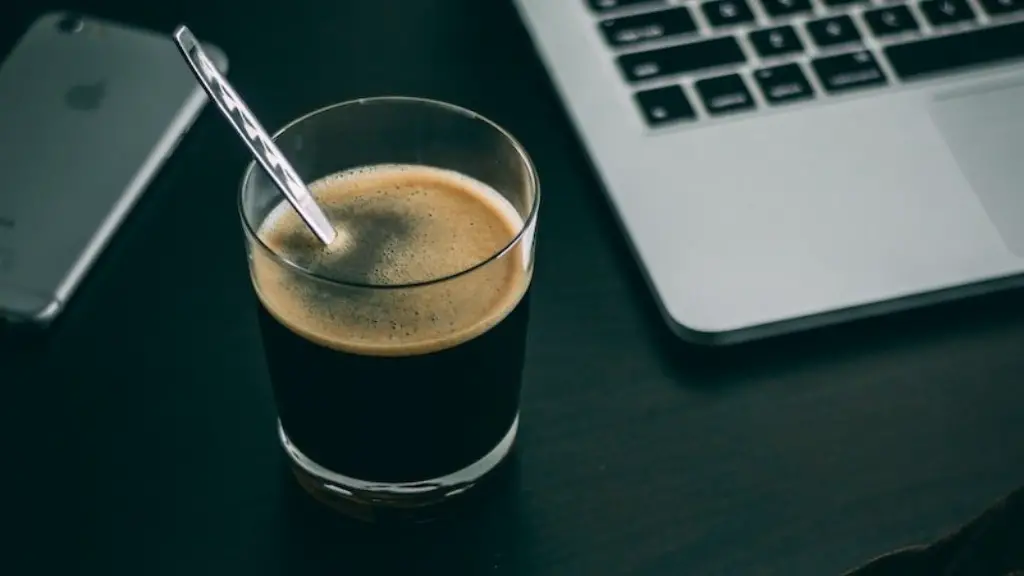What is Coffee?
Coffee is one of the world’s most popular drinks and has been a part of many cultures for centuries. It is made from the beans of the Coffea plant, an evergreen shrub native to tropical and sub-tropical regions of the world. Coffee has become an essential part of daily routines for many people, as it is thought to promote alertness and creativity.
How does Coffee Affect Our Health?
Research has suggested that drinking coffee can come with a range of health benefits, including protection from certain types of cancer, liver disease, type 2 diabetes, and Parkinson’s disease. This could be due to the fact that coffee is a rich source of antioxidants, which help to protect our body cells from damage.
In addition, coffee is a stimulant, containing high levels of caffeine. Whilst caffeine can provide temporary improvements to alertness, mood, and cognitive performance, excessive amounts can leave us feeling anxious, irritable, and low in energy. Too much coffee can also lead to poor sleep, an upset stomach, and palpitations.
Is Drinking Coffee in the Morning Bad?
For most people, coffee can be part of a healthy morning routine. Some studies have suggested that drinking coffee could reduce the risk of depression, particularly in people who already drink it. Drinking coffee may also improve our cognitive function and help us keep alert. Nevertheless, it is important to use moderation when consuming coffee, as excessive consumption can result in unpleasant and even dangerous side effects.
It is also essential to bear in mind that whilst many of the health benefits associated with coffee have been identified in observational studies, this does not guarantee that consuming lots of coffee will necessarily lead to better health. It is important to consider the potential risks and monitor how coffee consumption affects our body, as an excessive intake can lead to an increased risk of developing a range of health conditions.
Are There Alternatives?
There are a variety of alternative sources of caffeine available to those who want to stay alert and energised without the need to drink coffee in the morning. Some of these include tea, guarana, and energy drinks. These alternatives may contain more or less caffeine than coffee, but it is important to remember to consume them in moderation in order to avoid any potential side effects.
In addition, there are alternative ways to achieve a similar effect to that of drinking coffee. Exercise and mental activities such as puzzles or games can help to promote alertness by stimulating the body and mind.
Should I Stop Drinking Coffee?
The decision whether or not to drink coffee should be made according to an individual’s personal situation, as well as on the basis of the available evidence. For some, the short-term boost in alertness and energy that coffee provides may be beneficial and offset any potential risks, whilst for others it may be more prudent to look for other ways to stay alert and energised.
Ultimately, to ensure that coffee consumption remains healthy, it is important to be mindful of how much we drink and to monitor how it affects our mental and physical health. Moderation is key when drinking coffee, as the potential risks associated with an excessive intake could outweigh any potential benefits.
Natural Sources of Caffeine
Caffeine is not just found in coffee; there are many other sources of this stimulant that can provide a range of health benefits. Guarana, for instance, is a tropical plant native to South America that is rich in caffeine and antioxidants. Another source of caffeine is yerba mate, a South American herb that has been used for centuries for its energising effects.
Tea is another popular source of caffeine that contains a variety of antioxidants. It can also provide other nutrients such as calcium, magnesium, and iron. In addition, green tea contains catechins, a type of antioxidant thought to increase the metabolism and promote protection against certain types of cancer.
It is important to note, however, that natural sources of caffeine can still have side effects if consumed in excess, and it is still important to stay within the recommended daily limits.
Alcohol and Coffee
Whilst caffeine can be beneficial when drank in moderation, it is important to consider any associated risks of drinking coffee in the morning. For instance, it is well known that caffeine can increase the effects of alcohol, making us feel more alert and increasing our blood alcohol level.
For this reason, it is important to be mindful of any other substances we consume in conjunction with coffee. It is also important to note that alcohol can interfere with our body’s ability to process caffeine, and the combination can cause serious side effects if consumed in large amounts.
For those who wish to avoid alcohol, opting for low-sugar, non-alcoholic beverages might be a better choice. Low-sugar drinks such as soda water and sparkling mineral water are a great way to stay energised without consuming an excessive amount of sugar or caffeine.
Medications and Coffee
Consuming coffee can also interact with certain types of medication, particularly stimulants and sedatives. Caffeine can amplify the effects of some medications, resulting in an excessive reaction that can cause unpleasant side effects. It is therefore important to be mindful of the medications we are taking whilst drinking coffee.
It is also important to consider the interactions that caffeine can have with natural supplements and herbal remedies. Caffeine can interfere with some supplements and herbal remedies, particularly those that are designed to increase alertness or energy. Therefore, it is important to adjust consumption in order to obtain the desired effects.
Conclusion
Drinking coffee in the morning can come with a range of health benefits, depending on how it is consumed. Moderate consumption may help to reduce the risk of depression and improve cognitive function, but excessive intake could come with a range of unpleasant side effects. Therefore, it is important to stay mindful of the potential risks and monitor how coffee consumption affects our body.
Alternatively, there are a range of other sources of caffeine available, as well as alternative solutions to staying alert and energised. Ultimately, it is important to ensure that our caffeine consumption remains healthy and to be mindful of any medications or herbal remedies we are taking.




